|
28/9/2023 0 Comments SWIFT Events Newsletter | Issue 1 This issue includes a featured article and some highlighted programmes, courses and events. from our partners to support your professional development and enhance the work of your school. Simply click on the booking link, to the course or event you are interested in, to get more details or book straight on! Featured in this issue we have: SWIFT Membership 2023 – 2024 Welcome to SWIFT Membership for 2023 – 2024. We are delighted at the number of schools, federations, trusts and other bodies that have already signed up. Membership entitles you to a range of benefits. Final all of the benefits highlighted here to ensure you get the most out of your membership. Highlighted Programmes:
0 Comments
Our sponsor SchoolPro TLC provide some helpful and current advice about confidential references and subject access requests. When it comes to subject access requests and exemptions, it is important to understand the various exceptions that apply to certain types of personal data. One specific exemption relates to confidential references. According to the Information Commissioner’s Office (ICO) and the Data Protection Act 2018, personal data included in a confidential reference is exempt from the right of access in specific circumstances. The exemption applies to references given or received for the purpose of prospective or actual education, training, employment, volunteer placement, appointment to office, or provision of services by an individual. It is important to note that this exemption only applies to references that are provided in confidence. To ensure clarity in your documentation, especially for educational references, it is advisable to state explicitly that all references will be treated as confidential. This should be communicated to both the individuals providing the referees and those providing the reference itself. For example, instead of a simple instruction like “Please provide details of two referees.” You can modify it to convey that all references will be treated as confidential. A revised statement could be: “Please provide details of two referees. All references will be treated as confidential.” If your references are considered confidential, you will need to ensure staff dealing with subject access requests are aware of, and have adequate guidance to follow in order to prevent accidental release of your confidential references. Understanding these exemptions and clearly communicating the confidentiality of references will help ensure compliance with Data Protection regulations and maintain the privacy and trust of individuals involved in the process. By Ben Craig for the SchoolPro TLC Team More Information For more detailed information on other exemptions that apply to subject access requests, check out SchoolPro TLC's SAR Guidance and/or the ICO website and contact the SchoolPro TLC team directly for support. If you are interested in this topic and wish to find out more about working in this area, you can find out more about how you could Make a Difference with SchoolPro TLC. We are grateful to our SWIFT sponsors for their services and their support helps to provide additional funding for us to subsidise the cost of conferences and events as part of our high-quality professional development offer to school leaders, teachers and staff.
In this first issue for this academic year, Associate & Strategic Leader of Teaching & Research Schools | Education South West, Roger Pope CBE promises a good year:
"But maybe you like change? You cannot predict the future, but you can prepare for likely scenarios, or even try and shape them. A feeling of empowerment is a great thing. So, take advantage of the national policy vacuum to change what you want to do in your own sphere of influence." Our new Director of Teaching School Hubs, Jen Knowles looks ahead to the new school year and programme delivery of the Appropriate Body Service, Early Career Framework and National Professional Qualifications. Whilst Headteacher of South Molton Community Primary School, Tom Parkin, shares his priorities for the new year. We introduce our SWIFT Reference Group as part of our Diversity, Equity and Inclusion commitment. So, if you think you might like to be part of this initiative, ,keep a watch for more details to follow. You can read some of the feedback from our 2023 Summer Conference and as you plan this year's diary, save the date for our 2024 event on Thursday 13 June 2024. Our sponsor, SchoolPro TLC provides cautionary guidance on using WhatsApp for your group communications and find out some of the latest from Educatering and Lyfta and our new sponsor, Volt Entrepreneurs. 12/9/2023 0 Comments Diversity in the History Curriculum with Dr Miranda Kaufmann| Black Tudors and Other Untold Stories "Whatever the curriculum says, YOU have the power to change what happens in the classroom.” We were pleased to welcome historian, author, raconteuse, Dr Miranda Kaufmann at the end of term to conclude our 2022 – 2023 SWIFT History Masterclass series with her talk on Diversity in the History Curriculum: Black Tudors and Other Untold Stories with inspiration from her book, “Black Tudors: The Untold Story.” "[It is too easy] by emphasis and omission to make children believe…that every great thought was a white man’s thought and every great deed…a white man’s deed.” (W.E.B. DuBois, American sociologist, historian, civil rights activist and author). The impactful inclusion of Black British History is clearly and increasingly a vital priority in diversifying the curriculum. Yet, curriculum observers will know that it is not new. Teaching Black History dates back to the introduction of the National Curriculum 30 years ago with guidance to teach “the essential knowledge that they [children and young people] need to be educated citizens.” The important starting point is to acknowledge that Black History is British History. It is not and should not be a hidden truth. Even if some school History textbook covers have conventionally (and painfully) mispresented Black History with clichéd images of enslaved people. Quoting from Zadie Smith’s acclaimed novel “White Teeth,” Miranda highlighted this recurrent ignorance in the miseducation of Irie Jones. In the story, when Irie, the daughter of an Englishman and a Jamaican woman is studying Shakespeare’s sonnets, she asks her teacher Mrs Roody if the “dark lady” is “black” to which Mrs Rooney replies: “No dear, she’s dark. She’s not black in the modern sense. There weren’t any… well, Afro-Carri-bee-yans in England at that time, dear. That’s a more modern phenomenon, as I’m sure you know. But this was the 1600s. I mean I can’t be sure, but it does seem terribly unlikely, unless she was a slave of some kind, and he’s unlikely to have written a series of sonnets to a lord and then a slave, is he?” Uncomfortable, and as Miranda was to show us, inaccurate. But the good news is that this perception is changing and clarifying. 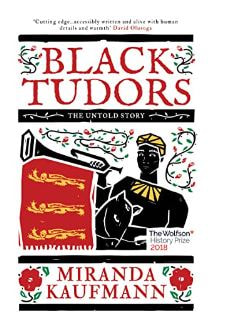 In a highly engaging talk, it was a refreshing revelation for me, and the Subject Leaders and Teachers of History in the audience to know and understand that over 200 Africans were living freely in Tudor England as Miranda drew on examples from her book featuring the stories of ten Black Tudors. Wonderfully intriguing and individual roles, such as John Blanke, the Trumpeter, Jacques Francis, the Salvage Diver and Mary Fillis, the Moroccan Convert. All of which intensely and intelligently refuted two common assumptions about Black British History. Firstly, there were Africans in Tudor England over 400 years before the first Windrush immigrants disembarked in Tilbury, Essex. Secondly, they were not enslaved. A clear and compelling case to refute those stereotypical textbook covers. Next, by teaching Black British History, those students with African ancestry can feel a sense of belonging, in that they are part of British History too. Clearly, an important piece of diversity, equality and inclusion work; which will hopefully encourage Black students to pursue history to GCSE, A Level and beyond; eventually impacting the way History is studied and presented by academics and popular historians, enhancing the discipline with a broader range of perspectives. Teaching Black British History can help to support the struggle against racism in challenging racist assumptions that immigration is a 20th Century phenomenon – and can be reversed. As Miranda shows in her book, focusing on the stories of African figures from the past can encourage empathy. By extension, this helpfully supports a timeline of understanding the ‘before’ the period of slave trading and colonisation and the after; and powerfully demonstrates the role of questioning assumptions in the study of History. The “interruption of the psyche” (Whitburn and Mohamed, Justice 2 History). 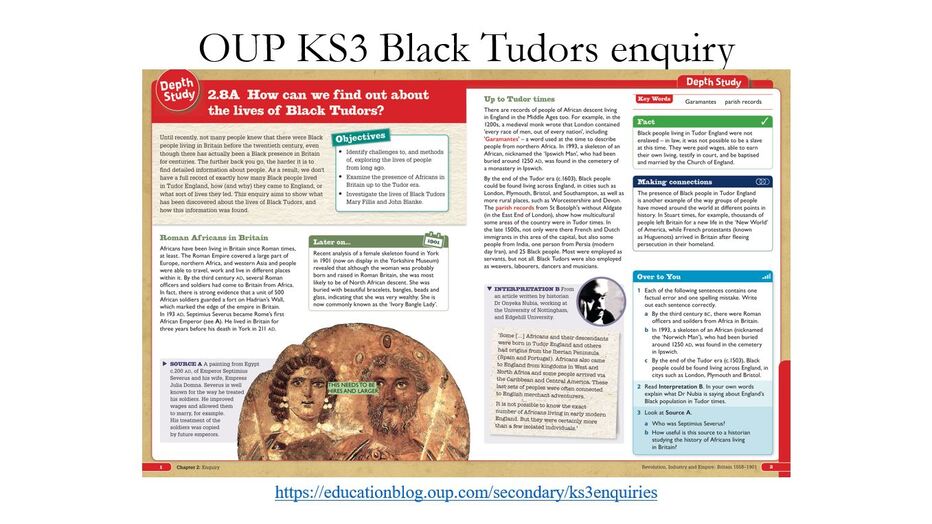 As in any curriculum change, there needs to be a long-term commitment and schools and teachers can play their part and we thank Miranda for sharing the following helpful suggestions to upskill and up-knowledge teaching of Black British History in the classroom:
With thanks to Miranda for her motivating and enlightening talk that made us all think about the endurance of Black British History and for sharing ways to teach and bring to life this significant part of history that can inform the present. By Jude Owens, PA to the Executive Team and Governance Your gateway to a LIMITLESS future. We are pleased to welcome our new sponsor, Volt Entrepreneurs who join us this September. Volt powers entrepreneurship in young people, starting with the mindset, that crucial piece of positive thinking that underpins all success and continues on to enable young people with the professional skill set of today. Using tried and tested experiential learning methods and with a proven track record, Volt offers the Short Circuit, a short online programme, and the Volt Circuit, an in-person enrichment programme during term time or as an intensive few days during school breaks. Students learn about effective communication, time management, and leadership, and gain the confidence of acting on ideas, recognising opportunities, and how to start their own business. Entrepreneurship can change your life. The earlier you start the better! The five key benefits of entrepreneurship ensure that “you can”: 1. Use your ideas to improve the world. 2. Be resilient and comfortable outside your comfort zone. 3. Choose your own life-style. 4. Surround yourself with like-minded, creative, dynamic people. 5. Become financially free. The 5As framework supports and mentors young people to achieve their aspirations as entrepreneurs, intrapreneurs and successful professionals, of any description. Volt cohorts say that they “feel more confident about everything…[and] know where to start with making my idea come true” and how Volt has “changed the way I look at my future career.” Teachers who work with Volt report on the dramatic change in their young people. “Your workshops are inspirational and I know they will benefit from your wealth of experience as [they practise] the skills they desperately need.” For a limited time, join the Volt community with your email for 25% off your first online course. The Volt Entrepreneurs programme is unique, innovative, affordable and doable. More Information To find out more, we invite you to visit the Volt Entrepreneurs website and contact for a conversation about how the Short Circuit programme can help to transform young people at your school. Due consideration is given to prospective sponsors and SWIFT is grateful for their support as this additional funding enables us to subsidise the cost of conferences and events, and local and national speakers, so that our high-quality professional development offer is accessible to school leaders, teachers and staff.
“Our hope for our children this year is to get back into school and in a positive way.”  At the start of this new academic year, Tom Parkin, Headteacher at South Molton Community Primary School shares some of his thoughts. In post for the past ten years, Tom finds the school a happy and rewarding place to work that fits well with his ideals as a leader. With the school’s mantra of Excellence Through Outdoor Learning, there is a clear and intentional focus on nature, which happily spells out the school’s values of Nurturing, Aspiring, Together, Understanding, Resilience and Equal. Demonstrating this commitment, the pupils and staff are especially proud of their recent award of the Eco-Schools Green Flag, in which they achieved the highest level of distinction. 1. As Headteacher, what are your hopes for the new academic year at South Molton Community Primary School? At the start of this brand-new academic year, it obviously brings lots of aspirations and enthusiasm for us at South Molton Community Primary School and builds on our continuing progress. The personal development side of our school is something that we really want to continue developing as well this year, and that we would like to embed into our curriculum; rather than as an extra. A vital part of this development includes outdoor learning, the extra-curricular trips and all that side of learning that we feel could be embedded further into our curriculum. This is a target for us this year, as well as developing our well-rounded curriculum and giving subject integrity and quality across the curriculum. 2. How would your pupils describe their school? Obviously, we talk to children a lot; which I hope gives a good flavour of what they actually think about their school. I think the number one thing is that they think we are a caring school who takes their personal development seriously and that we want them to experience a wide-ranging curriculum that is not only focused on the core subjects, but considers the whole child. We have been engaging in our outdoor work over the last five or six years, and developing that connection to nature and outdoor learning and how this connection is important for positive mental well-being for children and staff. I know our children would also talk enthusiastically about our environmental learning and improving the sustainability of our school. They would tell you about the sustainable journey we have been on and how we have improved our school over time. So, I would say a caring school that takes sustainability seriously and has a connection to nature. 3. What three things (or people!) would make a significant difference for your school improvement journey? Firstly, and I am very aware that this is something we need to improve as a school and looking to the future, is to think about joining a Multi Academy Trust, which we could take into our own hands and evolve to the next stage. Whilst we have some collaboration with other schools, this year, we would like to enhance and encourage this collaboration so that it has a positive impact on what we deliver to the children and is an action that we can control. Secondly, and perhaps less within our control to help us our school, is money. Extra resources and extra money would help the school to deliver more; especially with the current SEN agenda, and meeting the needs of increasing numbers of SEN children. And thirdly, which I suppose is an age-old problem for the teaching profession, is having more time. As a profession, I think we are always trying to do our best and aspiring to do better for the children - sometimes to our fault. I know that we might not be able to solve this one very easily, but we could certainly do with more time so that we can do better for the children. 4. What is the biggest challenge for you as a school leader? I think the biggest challenge for the last few years is trying to be as inclusive as possible as a school, whilst still achieving high standards for children. The needs of children have changed over the past years, especially since Covid and the lockdown. We have seen a massive change in the level of need and the number of children with high level SEN needs, which we are still dealing with and are expected to deal with in a maintained school. This brings lots of challenges for other children, and for those specific SEN children and staff supporting them. I think this issue has become more pronounced in our school and the impact on the wider school. I have found it to be particularly challenging when seeking to deliver excellence across the curriculum and whilst still trying to be an inclusive school that gives every child what they need. Unfortunately, I envisage this to continue to be a challenge over the coming years. 5. How does working with SWIFT support your work? There are a variety of ways. Obviously, meetings and conferences are probably where I liaise mostly with colleagues, and this provides me with opportunity for collaboration. I enjoy and value this opportunity and I find the meetings and talks with specific people useful. For example, we have been using the Walkthru coaching training for the last few years, which has had a positive impact on our school and teaching across the school and professional development of our teachers. Also, as a leader, the training and networking opportunities help me to think about how I am as a leader and what I do. It was thought-provoking for me to be part of the leadership visit to London in the Summer Term and this gave me an insight into other schools and gave me a lot to think about and to bring back to my own school. I am looking forward to this new year and the opportunities for myself and our staff with SWIFT. We thank Tom for sharing his reflections and wish him and his staff and pupils at South Molton Community Primary School a happy and fulfilling year. Interview by Jude Owens, PA to the Executive Team and Governance |
SWIFT News
|
SPONSORED BY
Join us, be a part of our SWIFT community |
© COPYRIGHT 2022 SOUTH WEST INSTITUTE FOR TEACHING SWIFT. ALL RIGHTS RESERVED | Website by brightblueC
VIEW OUR PRIVACY NOTICES | VIEW OUR COURSE T&CS
VIEW OUR PRIVACY NOTICES | VIEW OUR COURSE T&CS

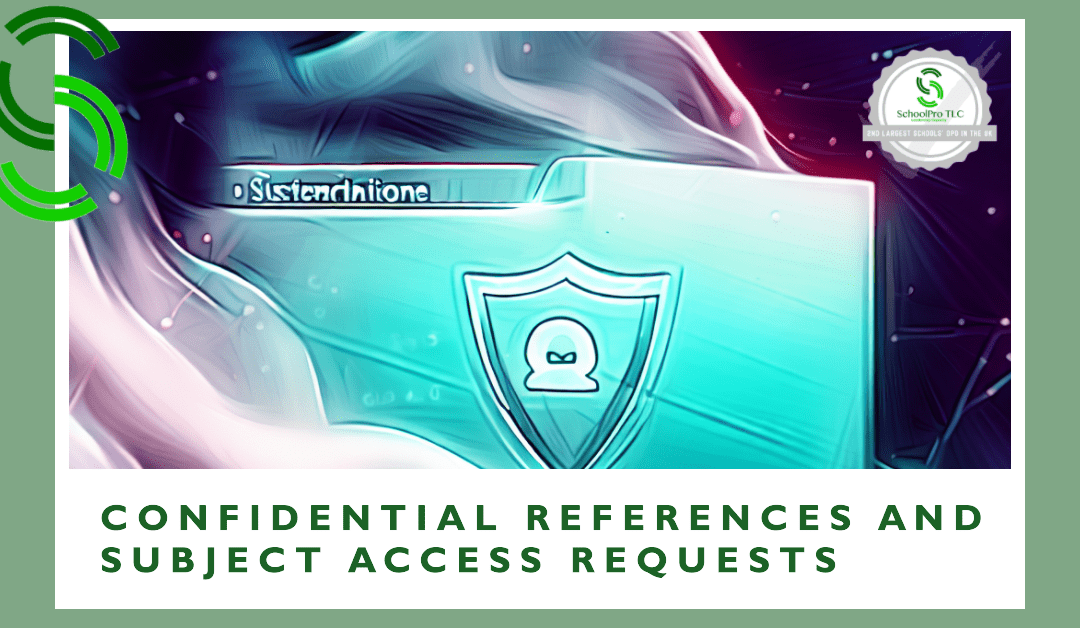



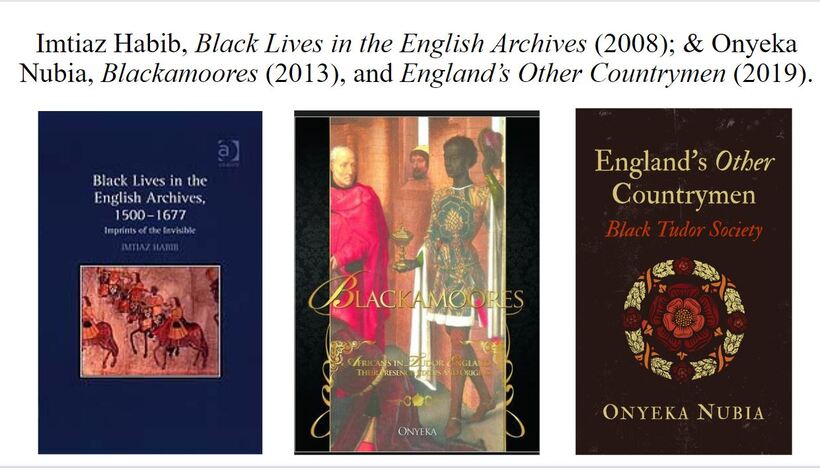
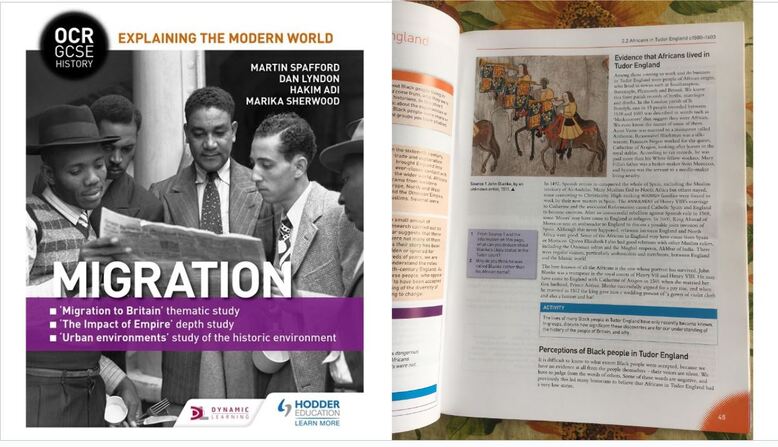

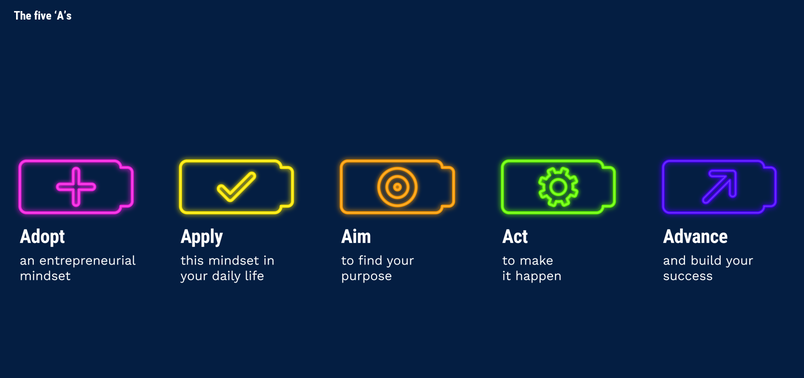
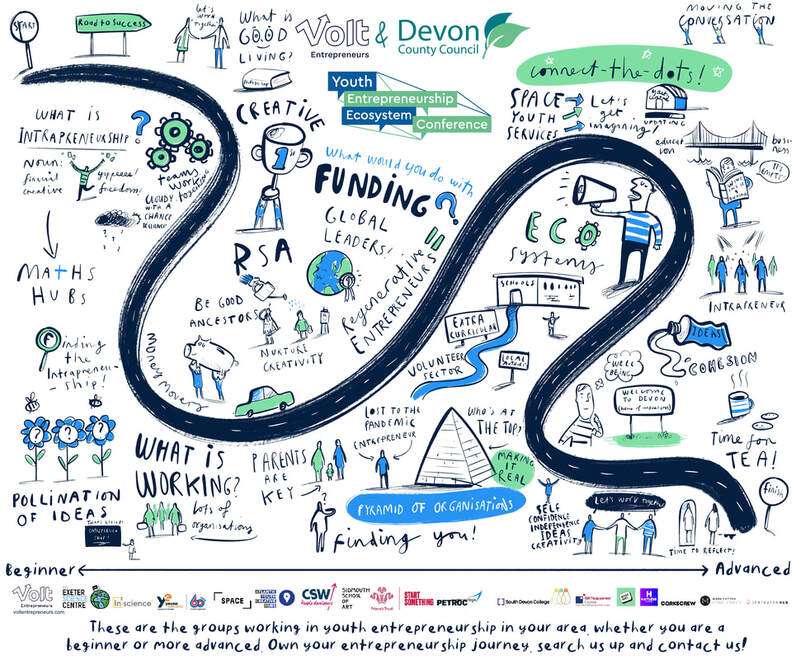
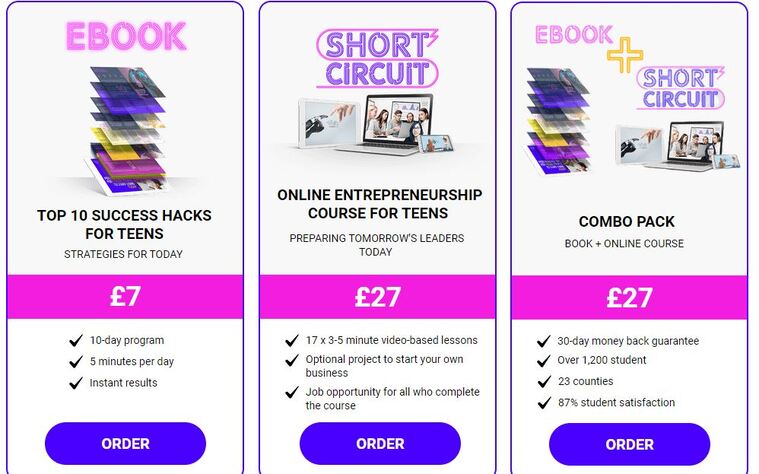


 RSS Feed
RSS Feed





